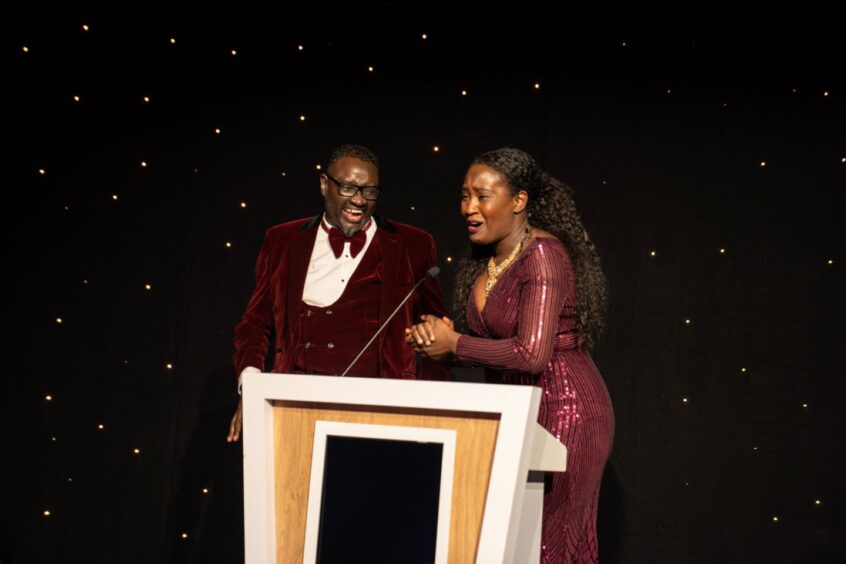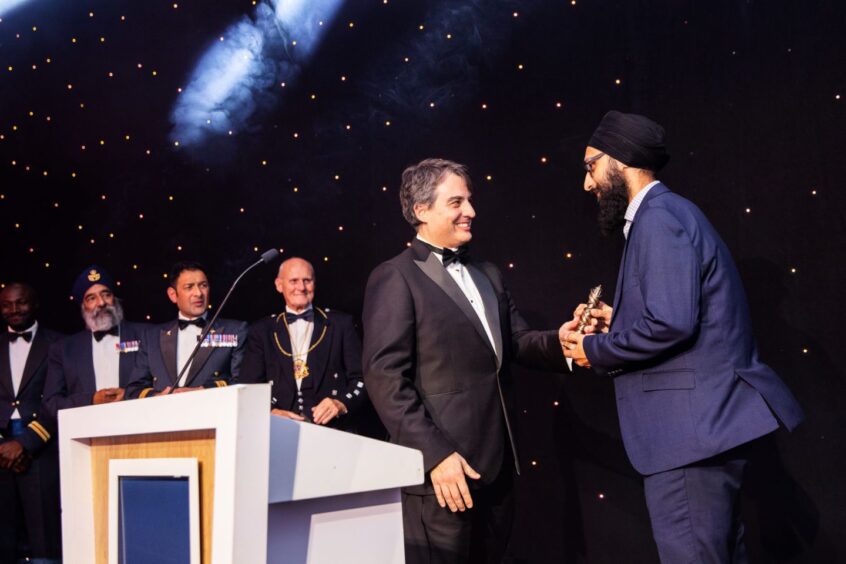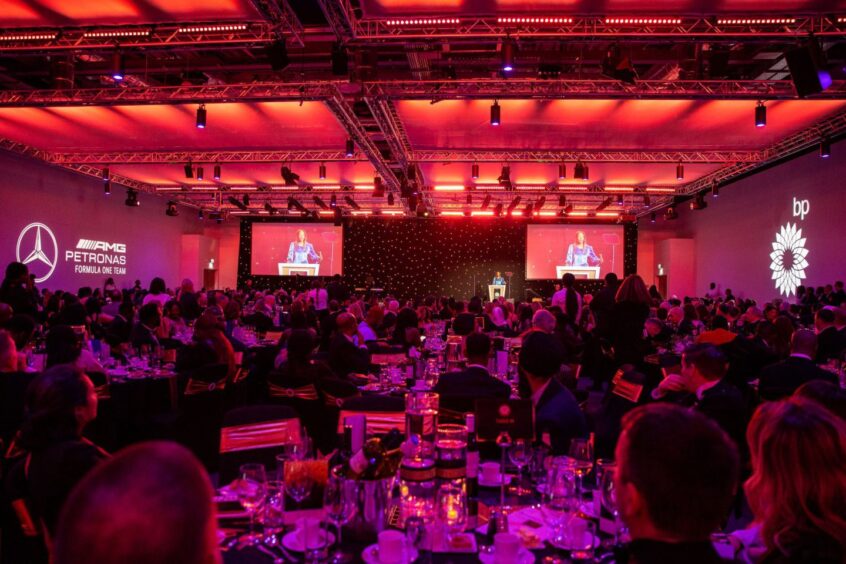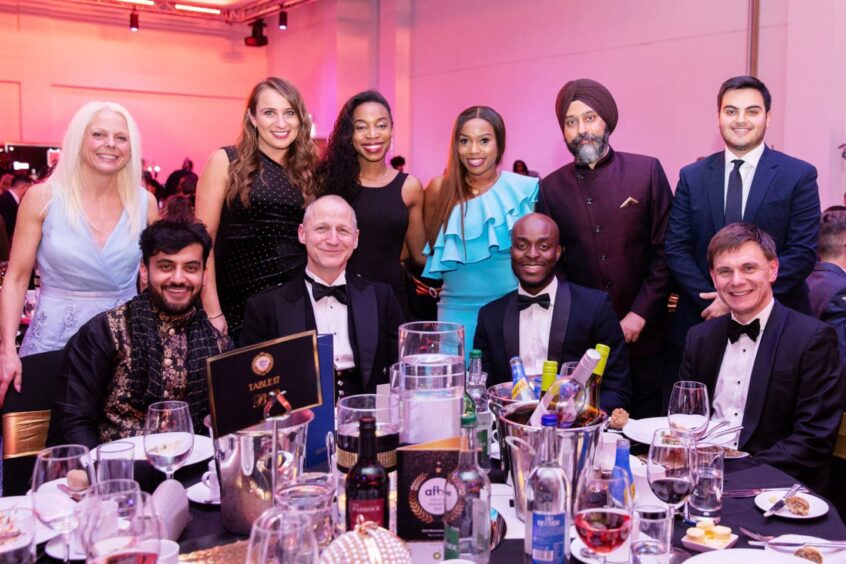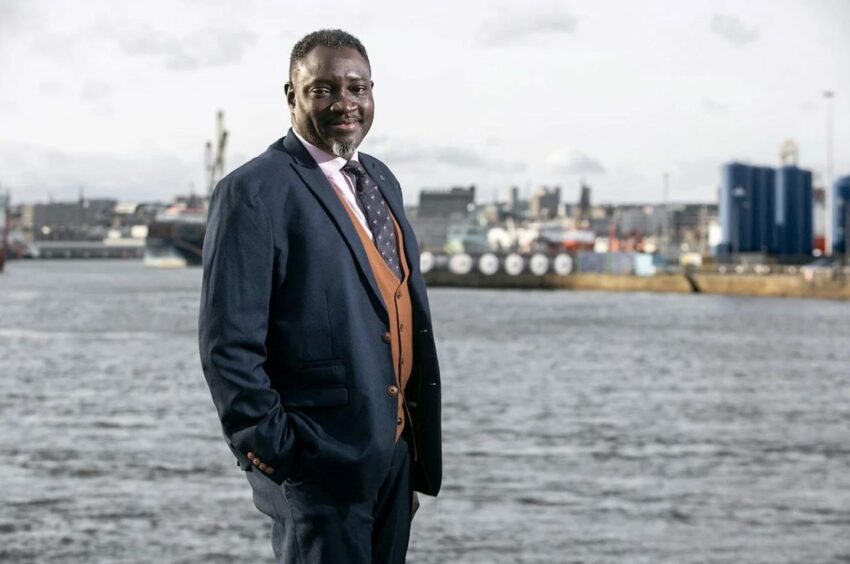
“I couldn’t help but wonder what it would be like if that sense of individuality intersecting with a sense of belonging was translated into our workplaces”.
On November 23 in Aberdeen more than 500 people gathered at the P&J Live for what turned out to be a most memorable evening.
This was no ordinary soiree. The AFBE-UK Gala and Awards was a moment for collective reflection on the theme metamorphosis – the theory of change.
A video featuring Dr Hayaatun Sillem CBE compared culture change to a murmuration of starlings migrating together to a better state.
The image evoked both individual and collective change, not in a superficial sense but in a real and lasting way.
As the evening progressed, winners shared their own journeys of metamorphosis, and the theme was also reflected in the keynote speeches.
Graeme Gordon, VP Production at bp, spoke about the transformation the energy company has undergone in recent years to ensure they are meeting today’s challenges of sustainability and the energy transition.
Paul Mills, Chief People Officer at Mercedes AMG Petronas F1 team, spoke about Accelerate 25, a programme designed to increase gender and ethnic representation in Motorsport.
Addressing the haggis, Findlay Anderson noted that the event was a celebration of life in all its diversity, and I couldn’t help but wonder what it would be like if that sense of individuality intersecting with a sense of belonging was translated into our workplaces …
We would attract the best people – The energy sector is at a critical self-defining stage. Does it continue with business as usual and just hope the protesters put down their placards and go home or does it look for a framework that engages seriously with the threat of climate change and comes up with a coordinated plan that helps us find commercially viable solutions? Key to creating such a framework will be ensuring that we have the right people and that traditional pathways to entry into the sector are re-examined.
We would retain talent within the sector – A consequence of the downturns in the energy sector has been the drain of talent in recent years. That coupled with an ageing workforce has meant that not only is talent challenging to come by, but there is also a growing skills gap and therefore a need to widen participation to fill those gaps.
We would find innovative solutions – From the glorious revolution of 1688 that preceded the industrial revolution all the way to the innovations created at the start of the 20th century helped in no small part by the acknowledgement of female engineers, to more recent innovations by engineers like Marian Croak whose voice over internet protocol enables us to use tools like Teams and Zoom, history teaches us that every time we needed to innovate we have also needed toinclude. The green industrial revolution heralded by industry leaders and politicians alike will not happen without a space in which every voice counts.
Sadly, there appears to have set into the discourse a diversity fatigue in some parts of our industry. But I believe this is mostly because the diversity dialogue has yet to be made integral to the core operation of our businesses in the way that safety has.
Without embedding inclusion, our activities become more of a burden and some of this may have been reflected in the low engagement with the most recent OEUK survey. There is also a risk of desirability bias where we prioritise saying the right thing over acknowledging what we really believe.
All of the above notwithstanding, it is undeniable that many organisations have begun their journey of metamorphosis through better data gathering, education on diversity issues, targeted approaches to recruitment and inclusive cultures.
This change is what we have seen consistently at AFBE-UK with companies engaging more with the issues, taking part in allyship workshops, and measuring the impact of the work they are doing.
I expect this to only get better in 2024.
Recommended for you

